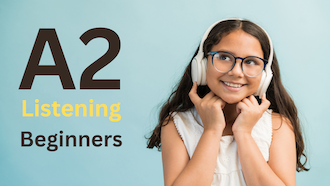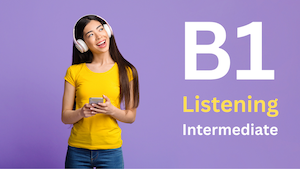Advanced Conditionals
Watch four videos using advanced conditionals in conversation.
Conversation 1 | PDF Worksheet
Man: When do you get your new computer?
Woman: It should get delivered by noon if all goes well.
Man: Yeah. It should get here by then unless traffic is bad.
Woman: Yes. As long as there is no traffic, I should get it.
Man: Well, should something come up, you can use mine.
Woman: Thanks. I might take you up on that.
Conversation 2 | PDF Worksheet
Man: Do you know whether we are having the meeting?
Woman: We are still having it unless something has come up.
Man: Do you know if we will go over the budget?
Woman: We will as long as we have time.
Man: I hope so, because problems arise when we don't discuss it.
Woman: Well, should they forget to mention it, be sure to say something.
Man: I will if they do.
Conversation 3 | PDF Worksheet
Man: What did you do last night?
Woman: I stayed late to finish the project.
Man: Oh, had I known that, I would have helped you.
Woman: That's OK. I'm almost done.
Man: Well, should you need any help, please ask.
Woman: I will if I need it.
Different Ways to Express Conditionals (If)
English uses many words besides “if” to show conditions. These include phrases like unless, as long as, should, when, and had I known.
“If” introduces a condition that must be true for something else to happen. It is used in all types of conditionals (zero, first, second, third).
- I will if they do.
- I will if I need it.
- It should get delivered by noon if all goes well.
“Unless” introduces a negative condition. It means “if not.”
- We are still having it unless something has come up.
- It should get here by then unless traffic is bad.
“As long as” means “only if this condition is true.” It sets a requirement.
- We will go over the budget as long as we have time.
- I should get it as long as there is no traffic.
“Should” can replace “if” in more formal or polite conditional statements.
- Should they forget to mention it, be sure to say something.
- Should you need any help, please ask.
- Should something come up, you can use mine.
“When” is used instead of “if” to express things that regularly happen or are expected to happen in the future.
- Problems arise when we don't discuss it.
- When do you get your new computer?
This is a formal way of saying “if I had known.” It refers to past situations that didn’t happen.
- Had I known that, I would have helped you.
- Had I known it would rain, I would have brought an umbrella.












